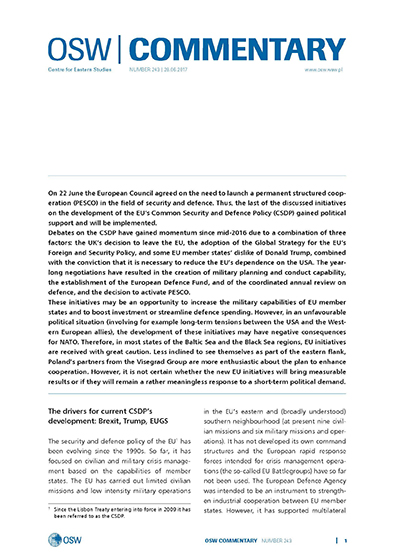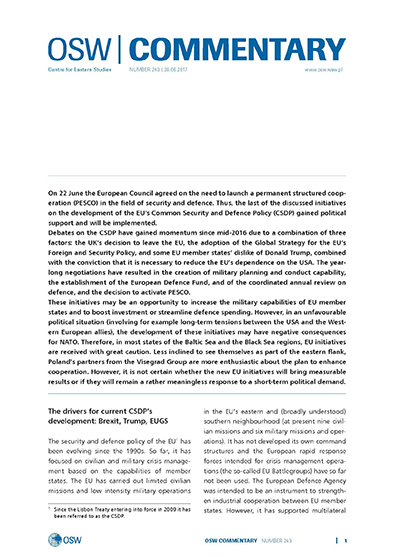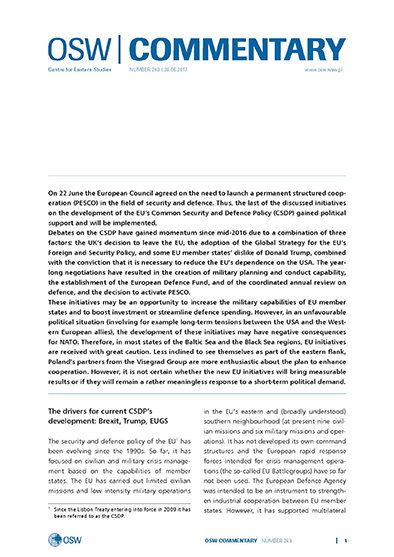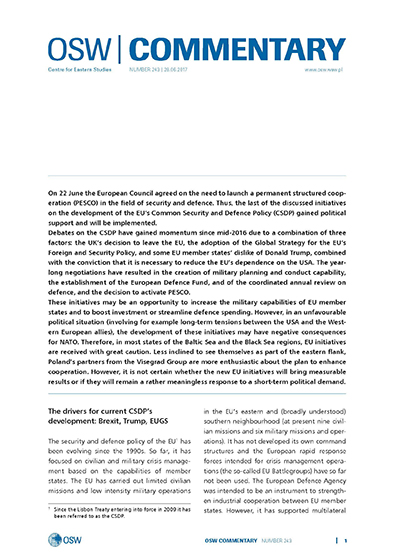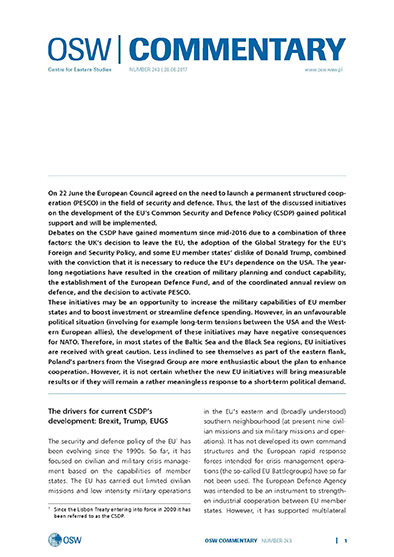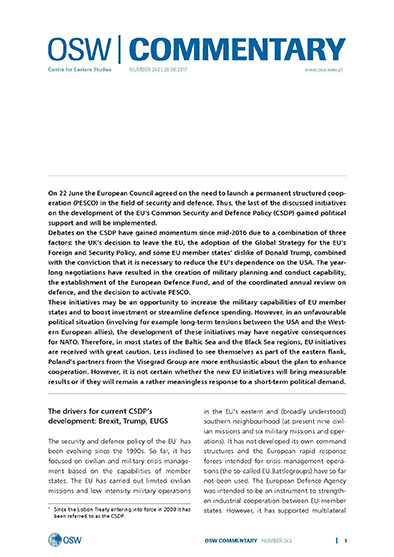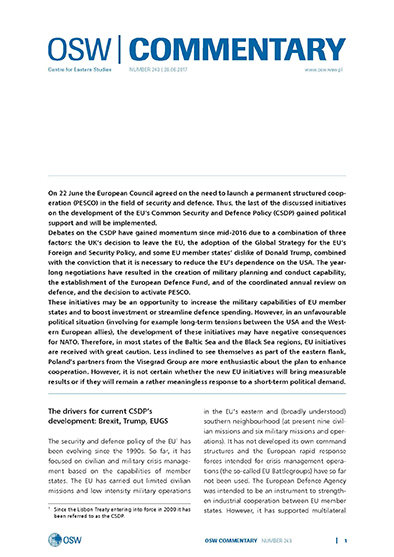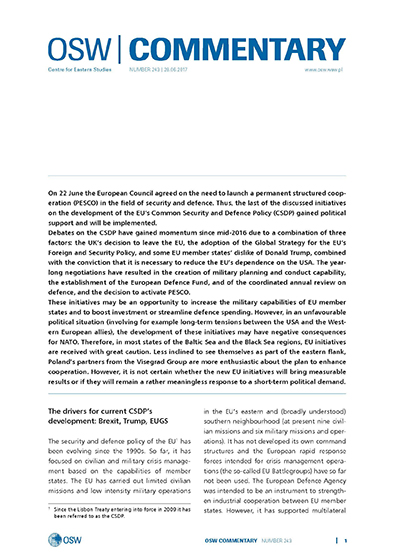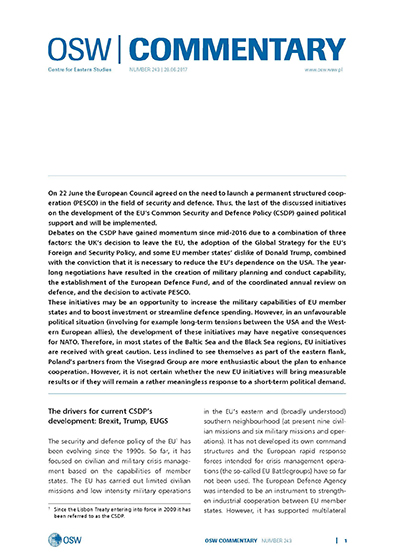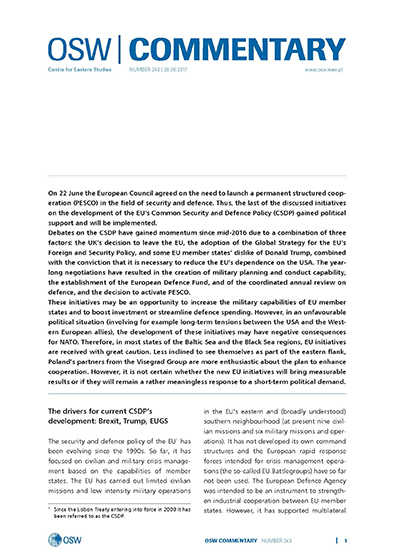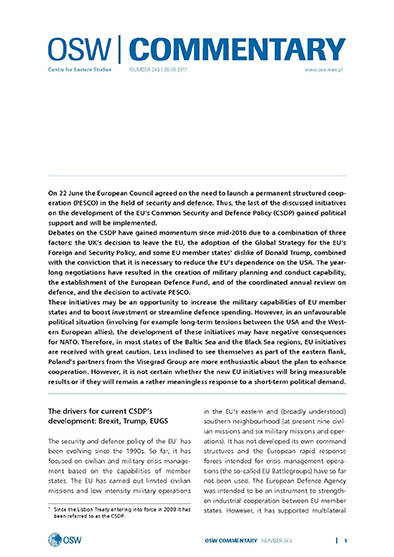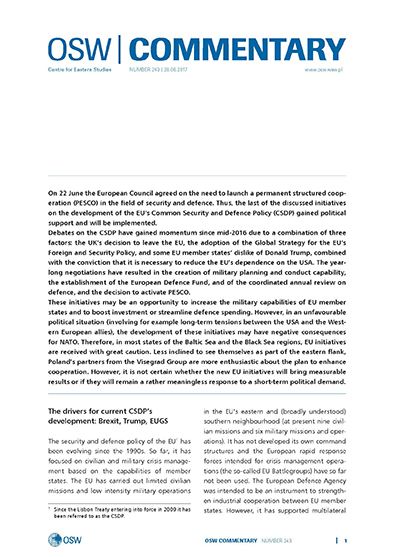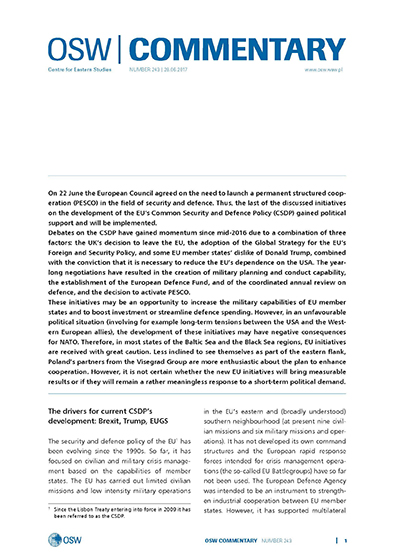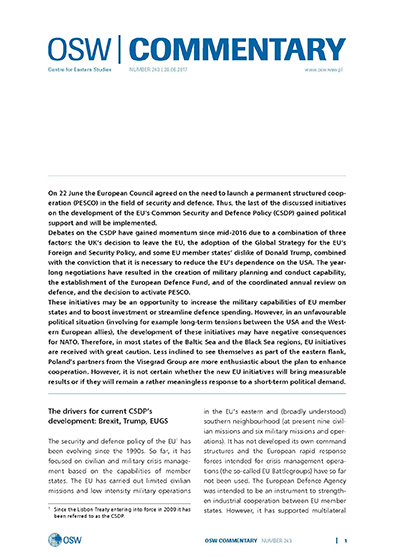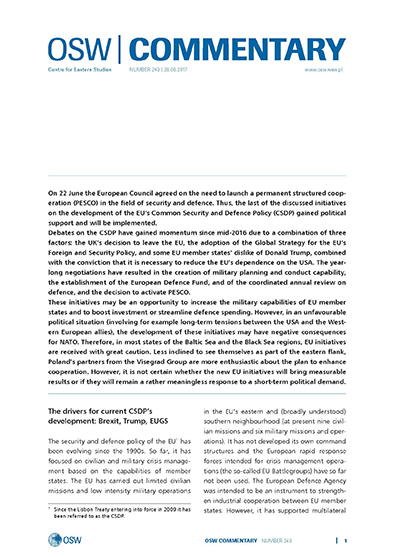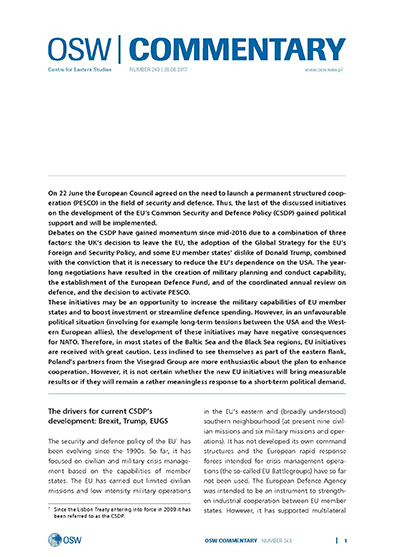Russia goes on the offensive ahead of the Eastern Partnership summit in Vilnius
Author(s): Agata Wierzbowska-Miazga / Language(s): English
Keywords: Russia; Eastern Partnership
In recent weeks, Russia has stepped up its efforts to prevent a group of former Soviet republics from tightening their relations with the European Union. The intensification of these efforts comes ahead of the upcoming Eastern Partnership summit, scheduled to take place in Vilnius on 28-29 November.It is expected that during the summit Kiev will sign the EU-Ukraine Association Agreement (AA) initialled in March 2012, including an agreement for a Deep and Comprehensive Free Trade Area (DCFTA). Meanwhile, Moldova, Armenia and Georgia are expected to initial similar documents, effectively accepting their terms and conditions, and paving the way for their official signing in the near future. Moscow has always viewed the relations between the EU and the post-Soviet states as a threat to its own influence in the region. Consequently, any attempts to tighten these relations have been actively opposed by Russia. The EU’s Eastern Partnership programme, launched in 2009, has posed a particular challenge to Moscow’s policies in the region.. Russia responded by rolling out a Eurasian integration project, which began in 2010 with the establishment of the Customs Union of Russia, Kazakhstan and Belarus, and is expected to culminate in the establishment of the Eurasian Economic Union by 2015[1]. Moscow’s overarching objective has been to persuade the countries in the region, especially Ukraine, to adopt an unambiguously pro-Russian geopolitical stance and to join the integration project proposed by the Kremlin. The Russian government hopes that this would permanently place these states in Moscow’s sphere of influence and at the same time prevent them from developing closer relations with Brussels. Russia has regularly taken actions aimed at showcasing the benefits of integration with the Customs Union (particularly, by promising preferential pricing of Russian energy resources) and at the same time it has adopted measures highlighting the pitfalls of retaining a pro-European orientation (mainly by imposing occasional trade sanctions). The upcoming summit in Vilnius, during which Ukraine, Moldova, Armenia and Georgia could lock themselves on to a pro-European course, has spurred Moscow to intensify its efforts to torpedo a successful outcome of the Vilnius meeting, with a view to slowing down or even blocking the possibility of closer cooperation between the EU and the former Soviet republics.
More...
